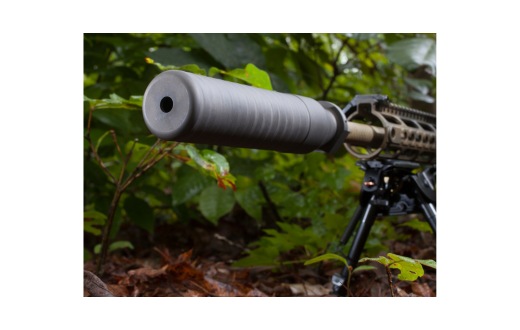Suppressors, commonly known as silencers, have long been a topic of interest and debate. Often portrayed in movies as tools of assassins, suppressors actually serve important roles in the world of firearms. While their primary function is to reduce the noise produced by a firearm when discharged, suppressors offer several benefits to both shooters and the surrounding environment. However, it is crucial to understand the legal considerations surrounding their ownership and use. In this blog post, we will explore the role of suppressors, delve into their benefits, and discuss the legal aspects associated with their use.
I. Understanding Suppressors:
Suppressors are devices attached to the muzzle of a firearm to reduce the intensity of the sound and muzzle blast produced when the weapon is fired. Contrary to popular belief, suppressors do not completely silence a firearm but significantly decrease the noise level, making the sound more manageable and reducing the risk of hearing damage for shooters and those nearby.
II. Benefits of Suppressors:
a) Hearing Protection:
One of the most significant advantages of using a suppressor is its ability to protect the shooter’s hearing. Firearms produce a loud and sharp noise when fired, and repeated exposure to such high decibel levels can lead to irreversible hearing damage. By reducing the noise level, suppressors mitigate this risk, allowing shooters to practice or hunt without exposing themselves to excessive noise.
b) Enhanced Accuracy:
Suppressors can also contribute to improved shooting accuracy. By reducing muzzle rise and recoil, they help in controlling the weapon’s movement during firing. This reduced recoil can be particularly beneficial for shooters with limited physical strength or those using high-powered firearms, enabling them to maintain better control over their aim and target.
c) Tactical Advantages:
Suppressors find practical use in military and law enforcement scenarios. By decreasing the muzzle flash and sound signature, suppressors can provide a tactical advantage by reducing the chances of being detected by opponents. This can be particularly valuable in situations where stealth and surprise are critical.
III. Legal Considerations:
a) Ownership and Regulations:
The legal status of suppressors varies across countries and even within different states or regions. In some jurisdictions, suppressors are heavily regulated or outright banned, while others have more relaxed laws regarding their ownership and use. It is essential to familiarize oneself with the specific laws and regulations in the relevant jurisdiction before acquiring or using a suppressor.
b) Compliance and Permits:
Where legal, owning a suppressor often requires compliance with specific regulations and obtaining the necessary permits or licenses. These requirements may involve background checks, paperwork, fingerprinting, and the payment of fees. It is crucial to adhere to all legal procedures and obtain the required authorizations to avoid legal repercussions.
c) Education and Responsible Use:
Even where suppressors are legal and regulated, responsible use is paramount. Owners should familiarize themselves with proper handling, storage, and maintenance techniques. Additionally, understanding the local laws regarding the use of suppressors in public places and shooting ranges is crucial to ensure compliance and maintain a positive image for firearms enthusiasts.

Suppressors play a vital role in the world of firearms, offering benefits such as hearing protection, improved accuracy, and tactical advantages. While their advantages are noteworthy, it is crucial to navigate the legal landscape surrounding their ownership and use. Staying informed about local regulations, obtaining the necessary permits, and using suppressors responsibly are key to enjoying their benefits without running afoul of the law. By understanding both the advantages and legal considerations, firearms enthusiasts can make informed decisions about incorporating suppressors into their shooting experiences.

